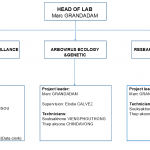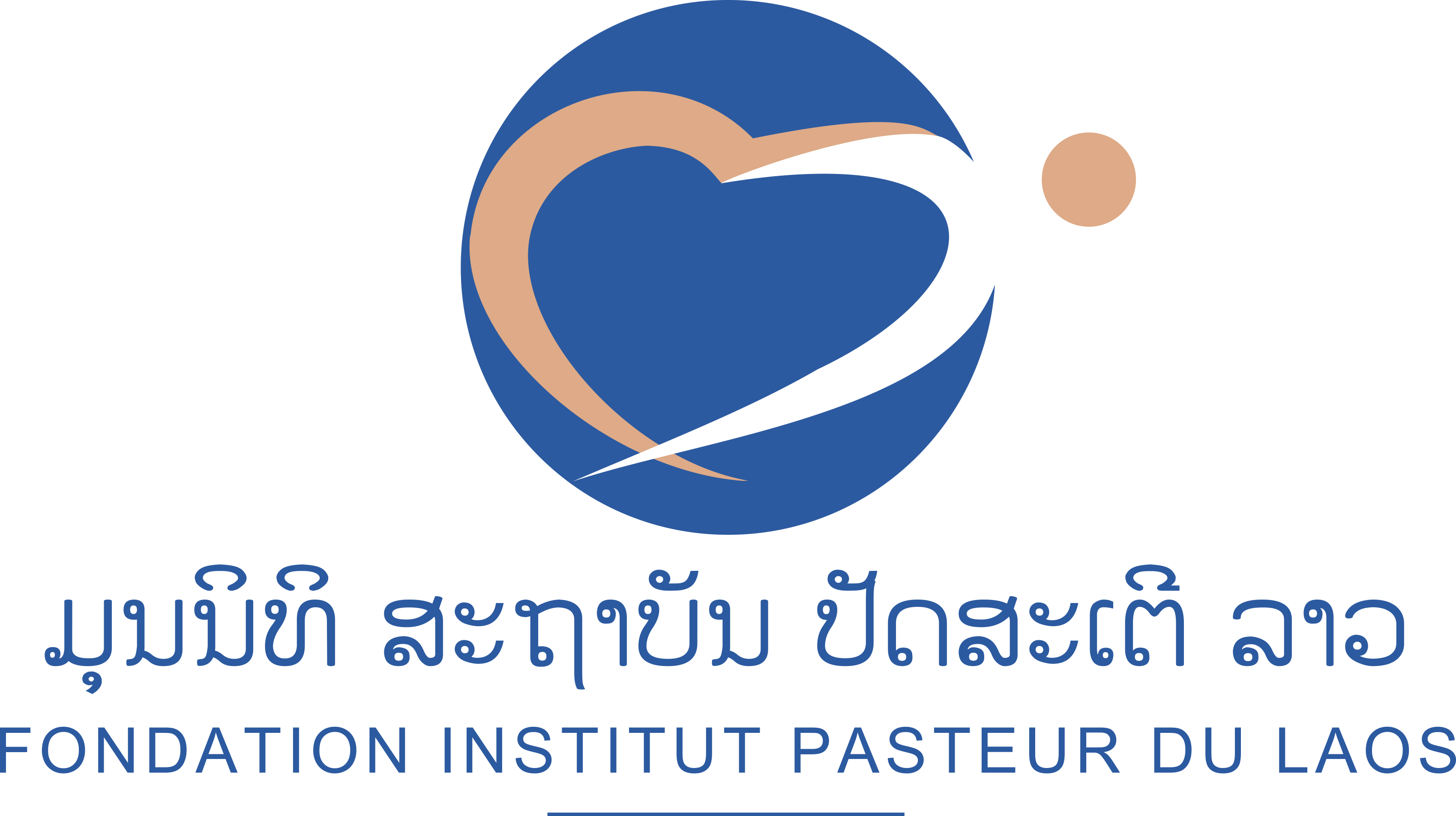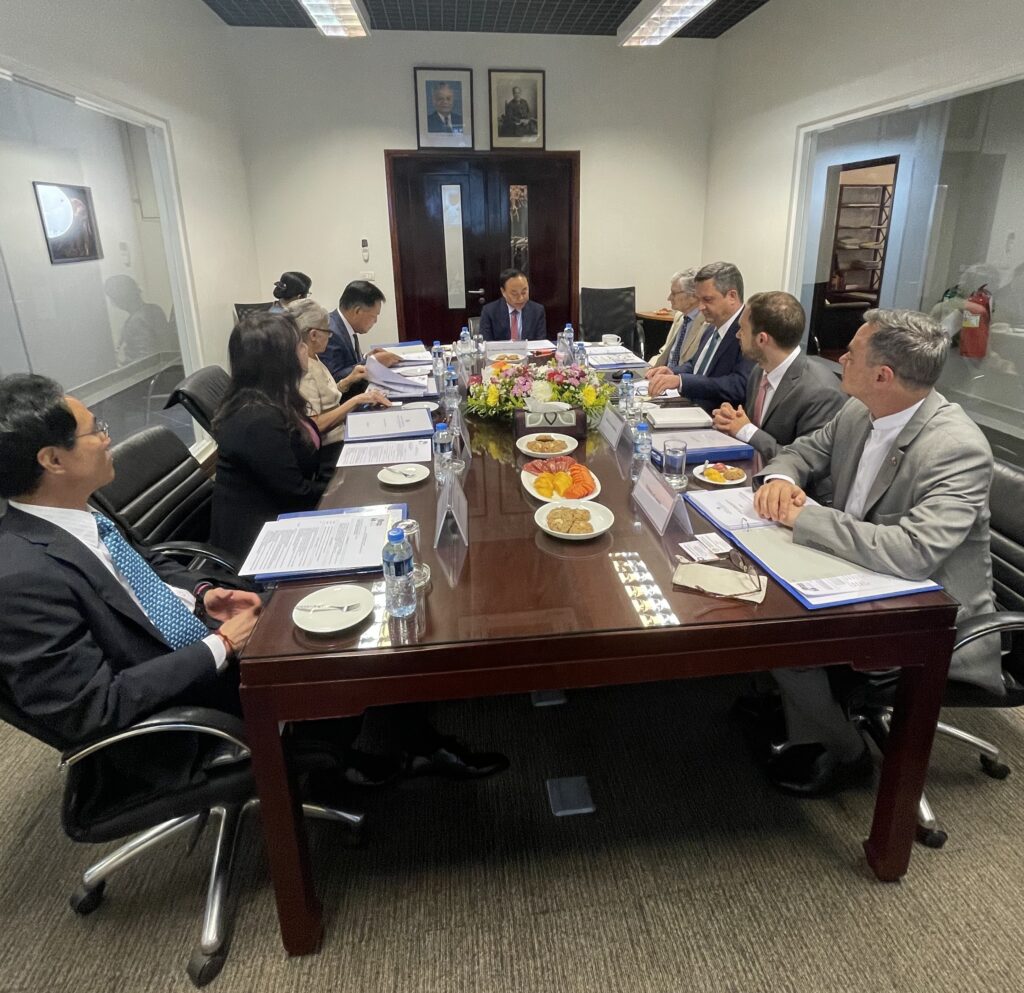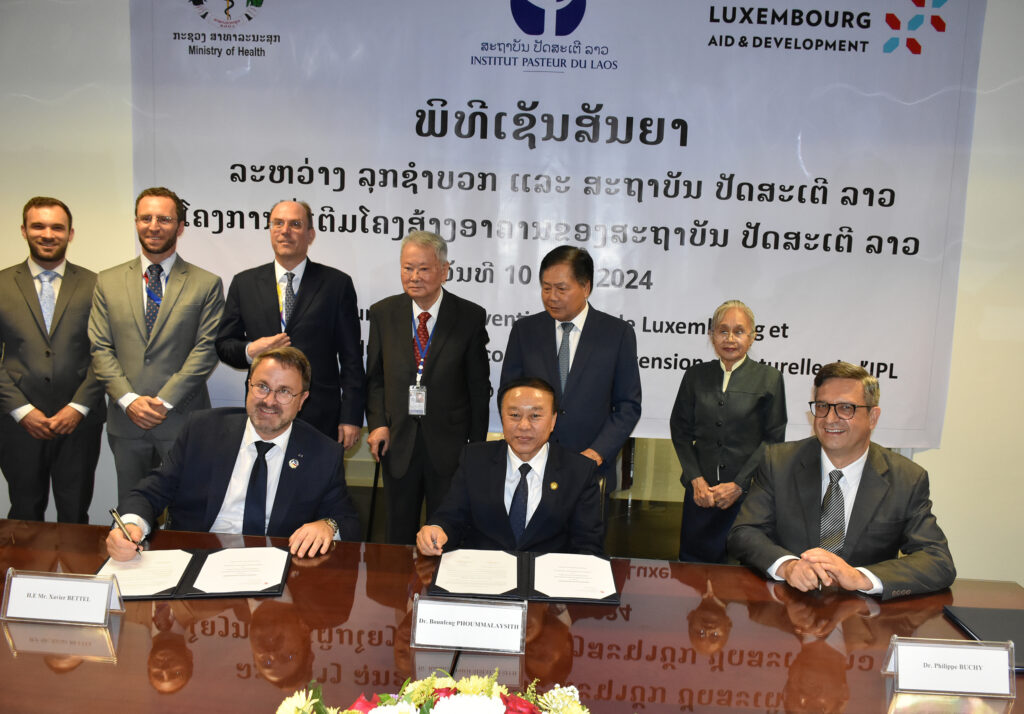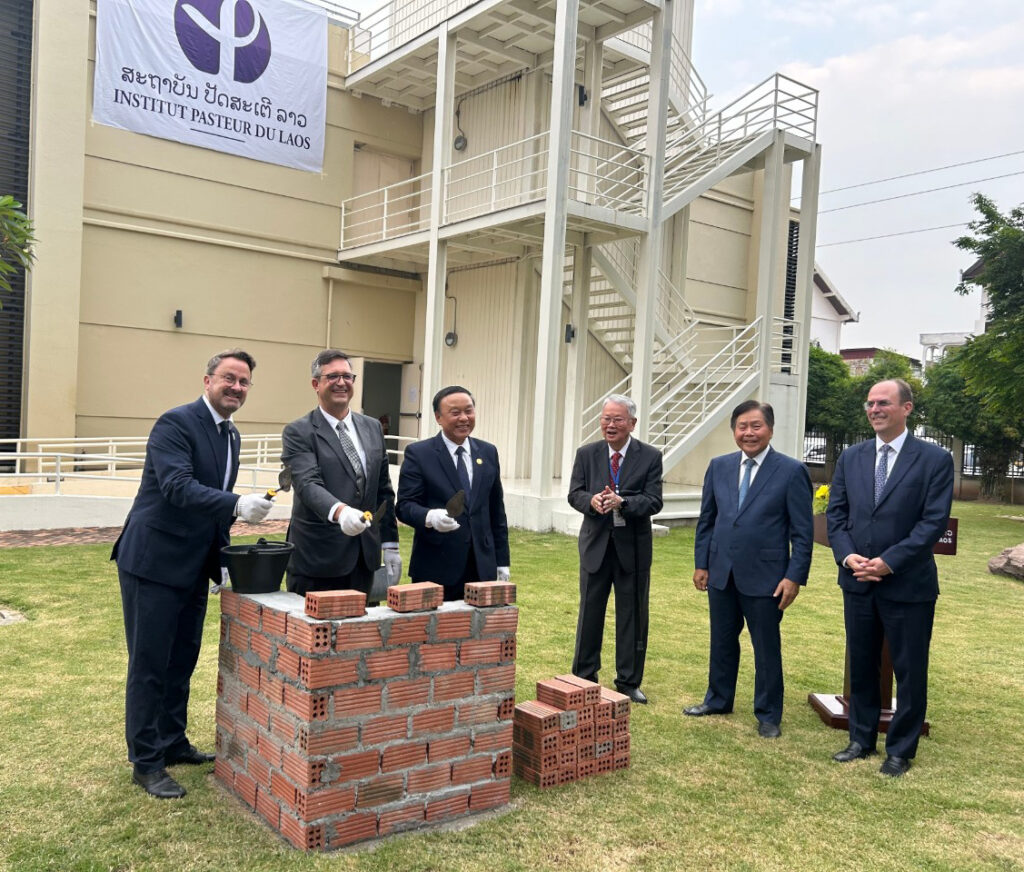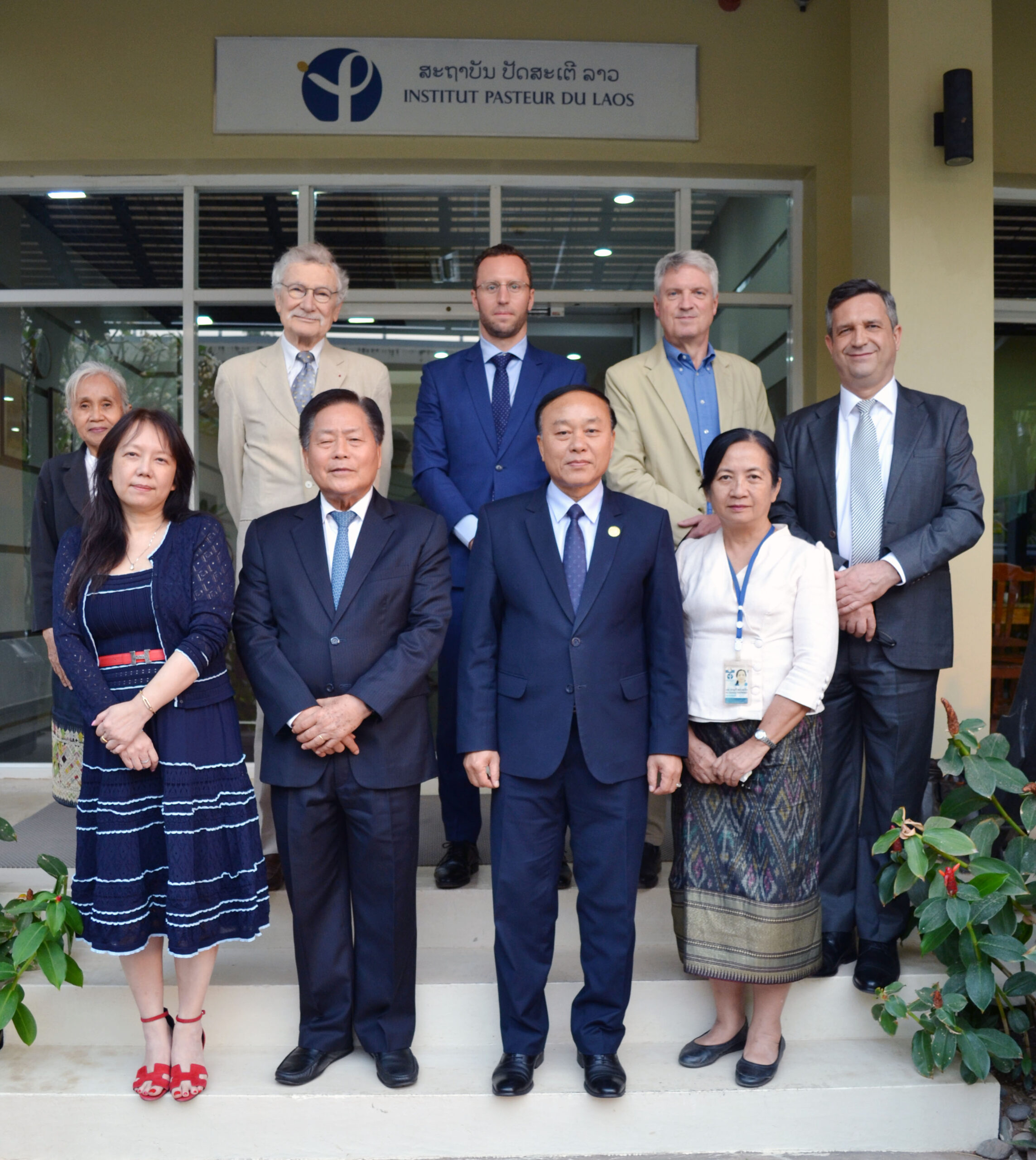Arbovirus & Emerging Viral Diseases 2019
Head of Lab: Marc GRANDADAM, PhD
Email:
Since 2012, the Arbovirus and Emerging Viral Diseases Laboratory developed combined field studies to improve knowledge of viral vector-borne diseases in the Lao PDR. Over the last three years, the team was organized around specific projects to help the young Lao scientists and technicians to acquire skills in virology with strong practical applications. In order to expand the capacities of the unit and reinforce the positioning of the laboratory in the public health arena, a new strategy has been developed. The team has now been restructured into three groups that, between them, encompass the different laboratories’ areas of responsibility.
Progress in arbovirus surveillance and staff changes afforded opportunities to reorganize the team. A major part of the group is now dedicated to the global surveillance of arboviruses, providing (i) assistance to Vientiane and provincial hospitals for the confirmation of arboviral infections, (ii) updated information and alerts to national and international health authorities and (iii) training for medical staff in hospitals. A second group focuses its activities on arbovirus ecology. Interactions with entomologists and vertebrate experts were reinforced in order to diversify the fields of investigation on arbovirus cycles and maintenance in wild environments. A third group is in charge of conducting research on more fundamental aspects of virus-host interactions and to develop new detection or diagnostic tests.
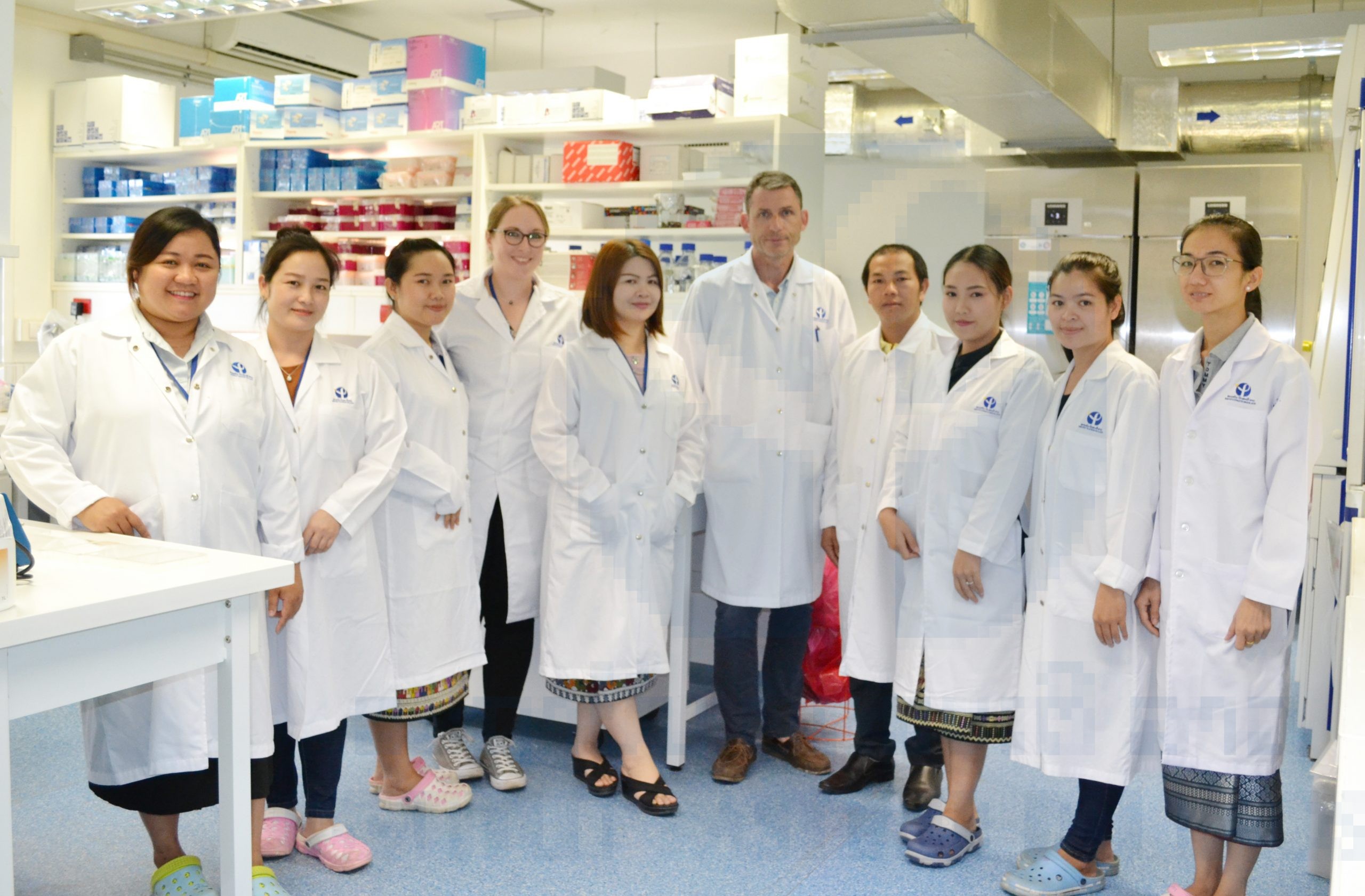
Executive summary
Arbovirus surveillance became over time the major tool for research and public health involvement of the Arbovirus and emerging viral diseases laboratory. The strong background of knowledge and data acquired by the laboratory over the last seven years allowed me to set up capacities to anticipate the dengue epidemic and improve patients’ diagnostic and management. However, dengue remains a major public health concern and its transmission remains challenging for the country. Dengue surveillance was the driving activity of the laboratory through the Ecomore2 project. Lao PDR experienced a continuous transmission of dengue with a global predominance of dengue 4 over the past three years. However, a sudden onset of dengue virus serotype 2 raised the question of the occurrence of a major outbreak in 2019. As of September 30th, more than 33.500 dengue suspected cases were declared at the country level within which, 66 fatal cases were attributed to dengue virus. The development of news laboratory methods was required to fulfill some objectives of the Ecomore2 project. Specific capacities were developed to improve dengue virus characterization. From a genetic point of view, a rapid screening protocol has been set up in order to determine dengue virus genotypes using partial envelop sequencing. Isolates of interest are then analyzed by extensive envelop gene sequencing. The surveillance system also aims to evaluate the risk of arbovirus importation and spreading. Experimental infection of local Aedes species have been performed to evaluate their competence for the transmission of different genotypes of chikungunya virus isolates from imported cases in Laos.
The expertise of the laboratory has also been requested by health authorities to reinforce the country’s capacities to fight against global emergencies (Ebola) or by private companies for the evaluation of new diagnostics tools. Over these eight years of activities, the laboratory became a key partner for the national health authorities by providing recommendations for arbovirus diagnostic, control and prevention, and training to reinforce health systems.
- Figure 1: Arbovirus and Emerging Viral Diseases Laboratory organigram
- Figure 2: Arbovirus and emerging viral diseases laboratory regional partnerships
Team
Scientist
1. Elodie CALVEZ, PhD
Junior Scientists:
1. Somphavanh SOMLOR, MD
2. Thonglakhone XAYBOUNSOU, MD
Technicians:
1. Phaithong BOUNMANY
2. Souksakhone VIENGPHOUTHONG
3. Sitsana KEOSENHOM, Lab & Quality Agent
4. Phoutsana KHAMSUVAT
5. Thep aksone CHINDAVONG
5. Phithaya THONGSAVATH, Data clerk
Project carried on in the lab:
+Arbovirus surveillance in Lao PDR
+Ecomore2 project
+Inputs of Research and development activities in Ecomore2 project
+Training activities
+Support to institutions
+Evaluation of new tools for arbovirus diagnosis

